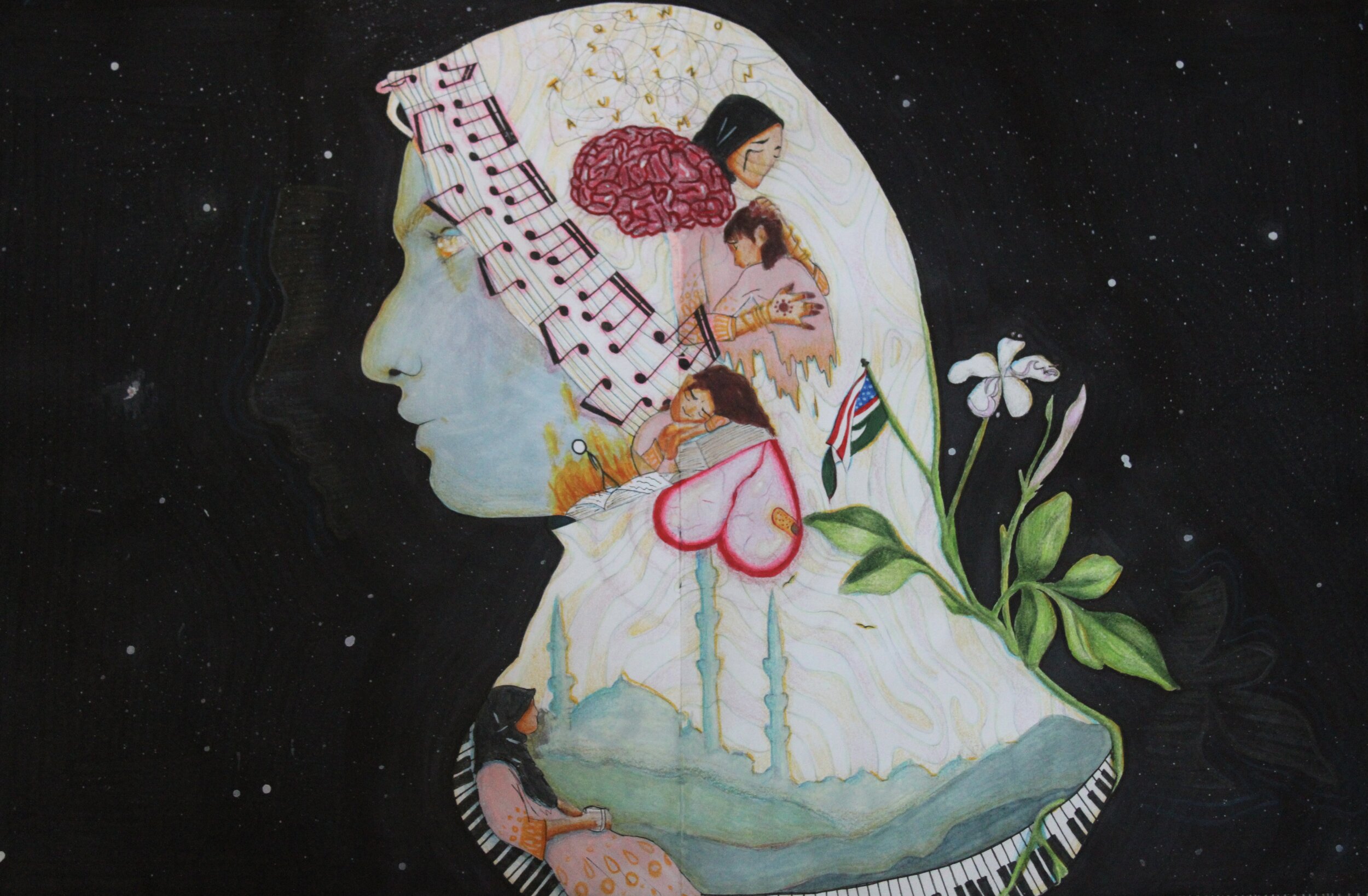one does not simply marry a saudi oil field and then self-report its mysterious death in Valentino Garavani pumps the next morning.
by Zoha Arif
cover art by Namooda Saher
“This is an internal self portrait. It focuses on my cultural identity as a Pakistani American Muslim.” - Namooda Saher

